|
In January, I posted my reading and writing goals for 2023 and now I'm checking in to hold myself accountable. My reading list from 2023 is at the bottom and I'll share my favorites in another post!
Reading: Goal: Read 15,000 pages. Reality: I read 19,608 pages! Goal: >50% of the authors will be marginalized or different from me in a demographic way. Reality: 50.9% were marginalized or different from me in a demographic way. Goal: Read 9 indie books Reality: I read 9 indie books (see reading list below) Goal: Read 2 foundational scifi novels Reality: I read 2 foundational scifi novels: Frankenstein and I, Robot Goal: Read 4 scifi nominees/winners from the last two years Reality: I read more than 4 award winners/nominess, though I'll admit they aren't all scifi, and not all nominated in the last two years: Chain-Gang All Stars (National Book Award 2023 nominee); Babel (Nebula winner 2023); Woman of Light (multiple award winner/nominee 2023); The Sixth Extinction (Pulitzer Prize 2015), All Systems Red (Nebula and Hugo 2018); Artificial Condition (Hugo 2019) Goal: 5 debut novels Reality: I read 7 debut novels: Woman of Light, Lessons in Chemistry, Please Report Your Bug Here, I Keep My Exoskeletons to Myself, The Blood Trials, Camp Zero, and Chain-Gang All-Stars Writing: Goal: Send >5 queries each month until I finish my potential agent list. Reality: Because some agents never opened in the time period I was querying, I didn't finish the list. However, that's beyond my control, so because I did send more than 5 queries per month until my list ran dry, I am counting this as a success. Goal: Finish the draft of my current WIP Reality: Success! Goal: Continue to attend my critique groups and keep up with pre-reading Reality: Success! Goal: Attend one writing workshop or conference Reality: I attended the PNWA 2023 conference. Goal: Get one short story selected for publication Reality: Nope! I totally forgot this was a goal this year. I wrote a short story, but never shopped it around. Oops! Overall, not bad. I only fell short on a couple goals. Below is my reading list from the year. My most popular genre by far was fantasy, followed distantly by scifi. Three of these books were DNRs, but at least 100 pages of each counted toward my page goal. Title Author Pub Type Genre Link The Sixth Extinction Elizabeth Kolbert Trad Non-Fiction My Review Woman of Light Kali Fajardo-Anstine Trad Historical My Review Arsenic and Adobo Mia M. Manansala Trad Mystery My Review Reminders of Him Colleen Hoover Trad Romance Podcast All Systems Red Martha Wells Trad SciFi My Review Chain of Thorns Cassandra Clare Trad Fantasy Lessons in Chemistry Bonnie Garmus Trad Historical My Review Anastasia Sophie Lark Indie Fantasy My Review The Chemist Stephanie Meyer Trad Action Podcast I Keep My Exoskeletons to Myself Marisa Crane Indie Scifi/Literary My Review Please Report Your Bug Here Josh Riedel Trad Scifi My Review Fevered Star Rebecca Roanhorse Trad Fantasy The Blood Trials N. E. Davenport Trad Fantasy My Review Murder Your Employer Rupert Holmes Trad Mystery Podcast Artificial Condition Martha Wells Trad SciFi Bird by Bird Anne Lamott Trad Non-Fiction My Review Babel R.F. Kuang Trad Fantasy My Review Rogue Protocol Martha Wells Trad SciFi Six of Crows Leigh Bardugo Trad Fantasy My Review Story Genius Lisa Cron Trad Non-Fiction My Review Crooked Kingdom Leigh Bardugo Trad Fantasy My Review The Adventures of Amina al-Sirafi Shannon Chakraborty Trad Fantasy My Review Charlotte: The Price of Vengance James Moore Pre-Pub Mystery Podcast Camp Zero Michelle Min Sterling Trad Scifi My Review The Power of Babel John McWhorter Trad Non-Fiction My Review Putting the Fact in Fantasy Dan Kobolt et. al. Trad Non-Fiction My Review Love, Theoretically Ali Hazelwood Trad Romance My Review The Terraformers Annalee Newitz Trad Scifi My Review The Legacy of Yangchen F. C. Yee Trad Fantasy Toph Beifong's Metalbending Multiple Trad Fantasy Fourth Wing Rebecca Yarros Trad Fantasy Podcast Frankenstein Mary Shelley Trad SciFi My Review The Mimiking of Known Successes Malka Older Trad Scifi/Mystery My Review The Raider Bride Johanna Wittenberg Indie Fantasy Starlet Sophie Lark Indie Historical/Mystery My Review Throne of Glass Sarah J. Maas Trad Fantasy My Review iRobot Isaac Asimov Trad SciFi My Review Of Cinder and Bone Kyoko M. Indie SciFi Poisoned Primrose Dahlia Donovan Indie Mystery My Review Chalice of the Gods Rick Riordan Trad Fantasy My Review Sun and the Star Rick Riordan/Mark Oshiro Trad Fantasy My Review Crown of Midnight Sarah J. Maas Trad Fantasy The Dictionary of Lost Words Pip Williams Trad Historical My Review When We Left Cuba Chanel Kleetan Trad Historical My Review Chain-Gang All-Stars Nana Kwame Adjei-Brenyah Trad Fantasy My Review My First and Only Love Sahar Khalifeh Trad Historical The Savior's Champion Jenna Moreci Indie Fantasy Iron Flame Rebecca Yarros Trad Fantasy Podcast coming soon! The Throne of the Five Winds S.C. Emmett Trad Fantasy Grunt Mary Roach Trad Non-Fiction Heir of Fire Sarah J. Maas Trad Fantasy Assassin's Blade Sarah J. Maas Trad Fantasy We're All Monsters Here Amy Marsden Indie Fantasy My Review Queen of Shadows Sarah J. Maas Trad Fantasy
0 Comments
The cover is giving me Carmen San Diego as a vampire, which is not a bad thing. I needed to squeeze one more indie book in before the end of the year to hit my 2023 goals, and thankfully I found the novella We're All Monsters Here by Amy Marsden. At 99 ebook pages, I was able to finish it in one sitting. I'm so glad this is the book I picked up!
We're All Monsters Here is like Glass Onion (aka Knives Out 2) but with a vampire named Anna. She manipulated a corporate big wig into planning an exclusive executive getaway and inviting Anna, whose app he recently bought. It's basically a vampiric buffet. Anna's weekend even improves when she has a fling with one of the assistants, Saira. However, vampire hunters show up and Anna must navigate carefully to avoid being taken out. This novella had a great voice and premise. Despite killing people, I really liked Anna--I mean, eat the rich, right? While I often complain novellas are too short, I thought the length of this one was just right. The first half was a little too smooth for me. If nothing goes wrong for the characters, I start feeling like the story is too simple and maybe predictable. When things went downhill for Anna, it was much more fun. That being said, the voice and premise kept me going in the first half. We're All Monsters Here is for you if you enjoyed Glass Onion, if you're looking for a sapphic urban fantasy, or if you want a quick read. It's not for you if your favorite part of fantasy is extensive worldbuilding, if you are looking for lots of twists and turns, or if you aren't able to handle blood and gore at the moment. Have you read We're All Monsters Here? What was your favorite novella of 2023? Let's discuss in the comments! The cover is interesting, but I would prefer Loretta's hammer on the cover, not a scythe. Chain-Gang All-Stars by Nana Kwame Adjei-Brenyah has been on my radar since January, when I read a list of the most anticipated 2023 debuts. Adjei-Brenyah has a short story collection out as well, but Chain-Gang was his first novel. It hit shelves in May 2023 and I've seen it on some lists of top reads for the year. I dove in with high expectations.
Chain-Gang All-Stars is like if you mixed the showmanship of pro wrestling, the reality TV/punishment concept of the Hunger Games, and America's broken prison system. Prisoners with greater than 25 year punishments are allowed to enroll in a program where they battle (mostly 1 v 1) to the death. After three years of battles, they can go free (called high freed). If they are killed, that's called low freed. The main character, Loretta Thurwar, is weeks away from freedom, and you follow her, her lover and fellow inmate Staxxx, and occasionally some other characters both inside and outside the system. This book was very well done. Though it incorporated many POVs, some only seen once or twice, it did a great job at denoting POV changes with separate scenes and didn't head hop. I was kept on the edge of my seat, never knowing for sure who would survive any of the battles. Even without the threat of death, the POVs outside the chain-gang were tense and added so much to the understanding of how this system was allowed to continue and how the world reacted to it. The worldbuilding and character development were very well done. It's hard to find a downside for me. If you're not a fan of violence, this will be a tough read for you. This book is for you if you are a fan of the "punishments on TV" concept from The Hunger Games, if you're a prison abolitionist, or if you want to study how doing a multi-POV book can really work. It's not for you if you're not a fan of reading about violence, if you are not in the headspace to read about abusers or rapists (although one character was convicted after killing her rapist, so there's that to balance the scale), or if you're going to be homophobic about the central romance. Have you read Chain-Gang All-Stars? What did you think about that final scene? Let's discuss in the comments! I kind of want this dress on the cover of the book! When We Left Cuba by Chanel Cleeton was another recommendation from a friend. It was written by an author whose family escaped Cuba and it was a Reese Witherspoon book club pick, so I had high hopes!
The book focuses on Beatriz Perez, an adult daughter in a family that escaped Cuba during the rise of Castro. Though they'd been very wealthy in Cuba, and continued to travel in the upper echelon of social circles in Florida, they were in financial trouble. However, Beatriz's goals are not to marry rich like her sisters, no, she wants revenge on Castro for the murder of her brother. When she meets a handsome up-and-coming politician, she wonders if revenge is the right route. However, when she is approached by the CIA about going undercover to take down Castro, she's tempted to go on the war path. This book has such an interesting premise. A woman cold war era spy, a little romance, I was sold. I didn't know much about Cuban history aside from the very big picture events, so it was interesting to see it from a Cuban/Cuban-American perspective and learn more. However, Beatriz kept making decisions that drove me insane. There was not enough spy craft, and when that plot line wrapped up, I was livid. She didn't have enough agency for me. Her male romantic lead was also so forgettable that I can't remember his name, nor find his name easily in reviews or even the blub on Amazon. He's off-brand JFK from Florida, basically. To me, he wasn't worth her time. This book is for you if you want to learn about the Cuban revolution (but not in a dates and names and places kind of way), if you want a romance with a touch of spying, or if you enjoyed Chanel Cleeton's other books, which have crossover characters with this one. It's not for you if you're looking for a spy thriller, if you're looking for a book about being in the Cuban revolution (that's all in the past in this book), or if you're looking for a more traditional romance plot. Have you read When We Left Cuba? What about Chanel Cleeton's other books? Are there other cold war spy novels about women you recommend? Let's discuss in the comments! Another gorgeous cover! The Dictionary of Lost Words by Pip Williams is a historical novel recommended to me by a friend. It's about a woman and her contributions to the Oxford English Dictionary in the late 1800s - early 1900s. Being an etymology nerd, and knowing it had a feminist bent, I was excited to dive in.
The novel focuses on Esme, daughter of one of the men tasked with collecting and organizing words for the dictionary. After her mother died, she spent most of her time with her father in a place called the Scriptorium, where the words were sorted and compiled. Esme found a slip of paper on the floor with a word and realized it had been lost and decided to keep it. As she grew older, she learned that some words weren't lost by mistake, but left out on purpose--often words related to the poor and especially women. She must decide what to do about it, continue to help a dictionary that loses words on purpose or save those words left behind. This book had a lot of interesting elements. I'd never thought about what it took to make the first dictionary or the thought process behind words to include or exclude. I thought Esme lived during an interesting time in England, which included the movement for women's suffrage and WWI. Something frustrating about the book was that Esme took a long time to start on her character arc, so the beginning felt too slow for me. However, a lot of what was happening around Esme was interesting enough that I kept going. Overall this book was an interesting read. This book is for you if you like Victorian-era historical fiction, etymology, and early 20th century feminism. It's not for you if you are looking for a super active character, if you're looking for a romance, of if you're not in the headspace to read about pregnancy/adoption. Have you read the Dictionary of Lost Words? What other historical novels have you enjoyed? Let's discuss in the comments! A visual representation of a developmental edit. Made on Canva by Kate Ota, 2023 This week I'm discussing a new experience my writing group engaged me in: a developmental edit. I'd never done one before, so I read about what they entail and what to look for before starting the process and did another refresher after I finished reading the manuscript. I thought sharing my experience could help someone else who either has been asked to do a developmental edit, wants to attempt to developmental edit their own work, or is curious about what this entails.
What is a Developmental Edit? A developmental edit is what I think of as an "early stage" edit, so you're not polishing sentences, you're polishing structure and plot and character arcs. Big picture stuff that could cause you to change huge sections of the story. No point fixing a sentence in a scene that's about to be removed. A dev edit is performed after drafting (at the earliest) but before line/copy edits. In the case of my writing group, it was done in lieu of a beta read. If you hire a professional to do a developmental edit, it is generally done after beta reading. How Do You Developmental Edit? As I read, I tried to keep in mind the big picture items: plot arc and character arc. The story was pretty linear, so structure wasn't a big concern in this case. However, if reading a non-linear story, be sure to keep an eye on structure too. I made some notes in line, but not as often as I do for beta reads. I didn't correct every small typo I came across unless it affected my reading/understanding. After reading, I put together an edit letter. There are lots of outlines online for what an edit letter should contain, so I followed one of those to make sure I hit the big points: positive feedback, setting, characters, character arc, pacing, dialogue, and plot holes. I kept my feedback a big picture as possible--don't write an entire page about one setting's single problem, or one line of dialogue that didn't fit. Elements of the Edit Letter Positive Feedback: This is huge to include in a developmental edit. Since this writer was going to get edit letters from the entire group of us, that could lead to an overwhelming amount of suggested edits. It's crucial to include what worked well, so that the author knows what NOT to change, and so they don't feel disheartened if the edit letters are long or require a lot of work. Setting: Even if set in the real world, the setting will still matter to the reader. Include if you could picture the setting in each scene, what elements were often missing (think sights/sounds/smells/tastes/touches), and if you understood when the scenes took place (night/day, years, seasons, etc.). Feel free to call out great things here too, of course, especially settings you felt worked well in contrast to ones that didn't, so the author can look at their own work to see what they did and pull that into the less successful scenes. Characters: For this section, I talked about all the characters except the main character and their arc, which is the next section. Here is where you should things like the number of named characters (overall or in a particular scene were there too many? Too few?), the names of characters (were any too similar? Did the author accidentally use a celebrity/infamous/famous character name?), and the purpose of side characters (could any be combined? Did you mix any up? Was there someone you felt was missing?). Positive feedback can go here too, like naming a favorite side character and why, mentioning a great character moment, etc. Character arc and pacing: I followed Save The Cat Writes a Novel as my guide for when certain beats should have hit, and used that to inform me on pacing, though often I could tell by gut if anything was running too long or happening too soon. Save The Cat acted like a nice quantitative measurement to back me up and help the author figure out how much to move their beats. The same is true for pacing plot and pacing the character arc. They should be two separate sections in the edit letter, despite the similar method. Character arc is the beating heart of a novel, so be sure to pay special attention to it: did the character complete their arc successfully? Did they have a lowest moment? Was the character arc driving the plot arc or vice versa? (The "correct" answer for that one will depend on genre, though agents right now love to talk about character driven stories.) Dialogue: Feedback here should include whether the dialogue felt natural in general (there will always be exceptions, like a character who is using a second language might be a little more stiff), if dialogue from different characters felt too similar, and if the dialogue to narration balance felt correct. That last one will depend on genre and taste, but go with your gut. This is also a place for positive feedback: did anyone have a great one liner that made you laugh? Did any character have stand out dialogue in general? Plot Holes: A little more general than the plot beats discussed in the pacing section, the plot hole section is where you discuss other problems with the plot or world. Even if set in the real world, there can be holes (for example: you may have to tell your author that Interstate 80 doesn't go through Colorado, it goes through Wyoming). More often, you'll need to point out questions that come up around "why did the characters do X and never even thought of the much easier method Y?" You may, but you don't have to, suggest possible solutions. However, don't get attached to your ideas, as the author may come up with a different solution that works better for them. If there are other thoughts or comments you have left over, feel free to add more sections. For different genres, you may need other sections such as Romance, Magic System, Alien Culture, Mystery Elements, etc. Every story will be different, so feel free to write an edit letter that best suits the manuscript you're editing. In the end, you'll send your edit letter to your author and hope for the best. Keep in mind, everything you're written in your letter is a suggestion, not a legal requirement. If the author loves and incorporates all of your feedback, hooray! If the author ignores every word you wrote, well, it's their novel. Odds are, something in the middle will happen, and that's great too. All you can hope for us that the author takes away at least one thing from your letter to make their book better in their eyes. Some Quick Don'ts
Have you ever done or received a developmental edit? Was it worth it? Do you recommend your editor? Let's discuss in the comments! Not one but two new books in the world of Percy Jackson and the Olympians (PJO) dropped in 2023: The Sun and the Star (Rick Riordan and Mark Oshiro) and Percy Jackson: The Chalice of the Gods (Rick Riordan). As a longtime PJO reader, I had to read these. I've been bad and skipped the Apollo series and I think these books spoiled a couple key events in that Apollo series, so if you're not caught up and don't want spoilers, finish the Apollo books before reading these two. The Sun and the Star published first, but is later in time. If you want to maintain total surprise in the timeline, read The Chalice of the Gods first.
The Chalice of the Gods is a classic PJO story. Percy needs three letters of recommendation to get into the university in New Rome with Annabeth. To get a letter, he has to do a quest. We're back to the classic trio of Grover, Annabeth, and Percy getting into trouble with figures from Greek myths. It gives the vibes of the first two or three PJO books but with older protagonists. Nostalgia galore. The Sun and the Star follows Nico, Hades's shadowy son, and Will, a child of Apollo, as they travel to Tartarus to retrieve something very important left behind when Percy and Annabeth visited in The House of Hades. While Nico is immune to many of Tartarus's dangers, his true love Will isn't so lucky. Both books were nostalgic, lightly/sweetly romantic, and a great read overall. A little older than readers who are just starting on the world of PJO (book 1 is Middle Grade after all), but it's perfect for readers who have read all the books up to this point. I know I normally list negatives here, but honestly, no notes. The Sun and the Star and The Chalice of the Gods are for you if you like the other PJO books, if you've been waiting for Nico and Will to get more narrative attention, or if you like Greek mythology. The Chalice of the Gods is a good entry point for readers new to the world, if you're intimidated by the backlog of other books in the series. These books are not for you if you're not going to be onboard with a gay romance, if you dislike PJO books (let's not discuss the live action movie), or if you need your books to take everything very seriously. Since Goodreads removed Middle Grade as a category in their Best Books of 2023 awards, shout out your favorite middle grade books in the comments to shine some much deserved light on them! Look at that sphynx! With a cover like that, I couldn't say no! I stumbled on Poisoned Primrose (Motts Cold Case Mystery, Book 1 ) by Dahlia Donovan when looking for an indie published cozy mystery to read. My goal this year was to read nine indies and I was behind, but I also wanted an indie in a genre I hadn't read indie before. When I saw the cover of Poisoned Primrose, I knew I needed to read it. It is book one in a series which also includes Pierced Peony, Pickled Petunia, and Purloined Poinsettia.
This book follows Motts, an autistic and asexual middle-aged woman and her sphynx, Cactus, who move into a late relative's cottage in a small English town. She knows the villagers, as she spent many childhood visits there, so there's a strong returning-to-small-town vibe. As Motts redoes the garden, she finds a very dated dead body. Motts pokes around to learn more about the victim and those who knew her, but the killer doesn't appreciate Motts's interest. I liked the portrayal of the sphynx cat, Cactus, it was 10/10. The author either has or has lived with one, I'm sure. Cactus was my favorite character. I liked that the main character was written by an autistic author. I've read a couple books now about an autistic main character written by neurotypical authors and they get quite cringey with the stereotypical portrayals. I liked that this book avoided that! I also liked how Motts's asexual identity was respected and represented. Unfortunately, the mystery was not clear enough to me. I didn't even have a sense of the age of the victim or why she was buried in Motts's garden at all. I was left without the sense of satisfaction that a solved mystery normally leaves me. I also had no idea what most characters looked like, so it was hard to picture some scenes. Overall, this book is for you if you're looking for authentic autism or asexual representation, if you want to fall in love with or learn what it's like to own a sphynx, or if you prefer mysteries about cold cases. It is not for you if you want all your questions answered at the end of a mystery, want a romantic subplot involving spice, or a prefer fresh dead body in your mysteries. Have you read Poisoned Primrose? Do you recommend other indie cozy mysteries? What other books have great autism rep? Let's discuss in the comments! Image made on Canva 2023 As promised last month, I'm going to share lessons from my first DNF (did not finish) of the year. And just in time for Halloween! Nothing scarier than a book full of promise falling flat on its face, right? I will not be naming the book, but to give context, it was on a list of best indie books of the year it was published, and the premise sounded fantastic. In fact, I'd hoped to use it as a backup comp to one of my novels. It's a self-published adult near future scifi, specifically biopunk. I stopped reading on page 120 out of 438 pages (27%). Rather than forget this and move on, I choose to take away lessons from books I didn't enjoy.
1. Choose Your Editor(s) Wisely If you're going indie, choose your editor or editors wisely. Some folks choose to forgo an editor, and that's your choice. However, if you pay someone to edit in any capacity (developmental, copyedit, line edit, etc.) make sure you choose someone who does a great job. Take advantage of offers to do a sample edit before you commit. If your novel is riddled with typos and plot holes, your readers will not stick around. 2. Don't Info Dump We all know not to do this, but in our own stories we always worry if the reader knows enough. Our beta readers might wonder about specific questions or ideas and we think we have to answer every one of them. However, if you info dump, your readers will know and will not be happy. We all need a certain amount of information to keep reading, but a trickle is better than a firehose to the face. Give enough to avoid confusion, hold back enough that they want more. We all do so much worldbuilding in the background, and it's tempting to shove everything in the novel, but remember the iceberg principle. Show enough worldbuilding to prove to the reader that there is much more below the surface--whether or not you actually wrote more below the surface doesn't matter. The book I DNF'd had such a giant info dump that I ended up skimming it--which is the beginning of the end for me when I read. 3. Avoid "As You Know, Bob" As you know Bob, or maid and butler dialog, is when two characters discuss something they both already know for the benefit of the reader/audience. This is made even worse when it's used to info dump. Your reader will know it's happening, they'll wonder why this conversation is happening, and they'll soon realize it's for them. That ruins the illusion of the reading experience. The book I put down had so much of this that I stopped trusting the author to tell me a good story. Maybe the plot was going somewhere interesting, but how the story is told is most of the battle. 4. Know Your Stuff If you're writing about something technical, let's say gene editing, you better be up on the latest developments. People who love scifi tend to also love science. Especially if you're doing a near-future setting, you need to know what's already happening. Otherwise, you end up sometimes creating an entire plot around science that's out of date, and your plot problems could be solved with science available right now. Your readers will know and will be annoyed. This was my biggest factor in putting down the book I DNF'd this time. It got science wrong that I did in grad school, and it was so wrong it made me cringe reading it. This lesson can be true outside of scifi too, for example people who know horse stuff will complain about horses written poorly in fantasy (there was a whole chapter about horses in Putting the Fact In Fantasy.) So if you include anything in your book that you don't know a lot about, be sure to do your research! Those are the big takeaways from the first book of 2023 that I didn't finish. What are some things that make you put a book down? Have you improved your writing by seeing what doesn't work? Let's discuss in the comments! A retro cover of I, Robot depicting a scene from one of the stories within. Isaac Asimov is a famous mid-twentieth-century scifi writer of both novels and short stories. Aside from I, Robot, his most famous work is the Foundation series (which won the one-time Best All Time Series Hugo Award in 1966, kind of a big deal). He won many awards, and now some awards, magazines, and even robots are named for him. Most of his work includes robotics, and his three laws of robotics have been at the very least considered if not adapted by many who include robots in their own writing. If you're writing robots, cyborgs, or even AI in your scifi, you need to read iRobot. Plus, it's got some thriller and horror elements, and robots fit the Halloween vibe, right? So it's the perfect time to read it.
1) Just like Frankenstein, don't be afraid of a unique structure I, Robot, as it sits on a shelf today, is not how the contents were first presented. Now, it's a series of stories with an external story woven through that connected them all. Initially, these stories were published solo from 1940-1950. If all of the stories had been presented in chronological order with no external structure to guide me, I would have thought this was very choppy and didn't flow. The structure being handed to me up front made it easier to understand these were short stories stacked on each other in a trench coat. It may be a challenge to put together, but a unique structure could be just what your complex novel needs. 2) Play with your worldbuilding Each of the short stories delved into a different aspect of how the laws of robotics worked, or could inadvertently fail, and also included what was going on socially with how the world viewed robots. It was a really cool way to see how this world functioned and it was fun guessing at how the three laws of robotics would get messed up in each tale. If your story world has set laws (socially or physically), see how those laws interact, if they can fail, or if they can bend. Maybe your characters don't even understand the laws fully, so what they consider a rule is actually much more complex. Feel free to play and even write short stories about your world to get to know it more deeply. 3) Anticipate future social norms One thing I appreciated about I, Robot was that the main character, the robopsychologist being interviewed in the external structural storyline, was a woman. This was put together in 1950, and that character appears in the short stories too, so she wasn't just slapped in there for fun. While she was the only woman prominently featured as a scientist, she was so necessary. If I'd read this book and it had been all men in science despite the mid-to-late 2000s setting, I wouldn't have enjoyed it. If your writing is set in the future, think about how it will read in the future. Will that joke you made still be funny, or could it be harmful? (The gauge here is to "punch up, not down" i.e. make fun of the powerful not the people with equal or less power than you. Satire about the president: will probably age well; joke about the poor: no.) Will your inclusion of different genders (and think full spectrum here) be appreciated? Probably! So don't be afraid to think of the future socially just as much as technologically. (Though Asimov wrote a woman in STEM as a prominent character, note there were plenty of people reporting his sexual harassment of women during his lifetime. So, write as he wrote, but don't do as he did.) Those were my big writing takeaways from Isaac Asimov's I, Robot. If you're looking for the plot from 2004's I, Robot with Will Smith, you may end up disappointed. However, just think of that movie as another short story that would fit right in to the collection. It didn't surprise me that the Hollywood version was so different from the book, the same was true for Frankenstein! Have you read I, Robot or other Asimov novels and short stories? Have you learned any good writing lessons from him? Let's discuss in the comments! |
Archives
February 2024
Categories
All
|


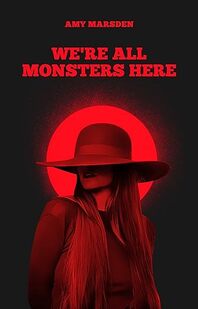
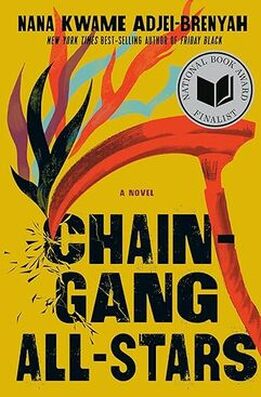
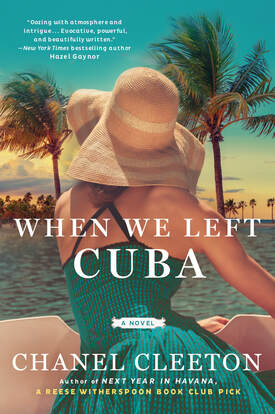
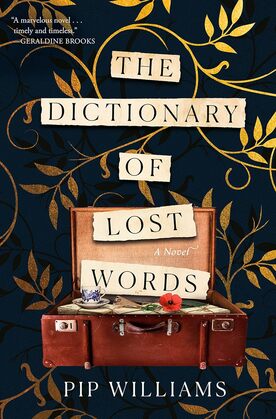
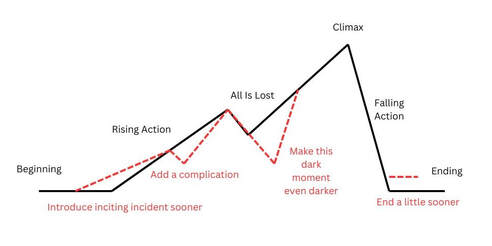
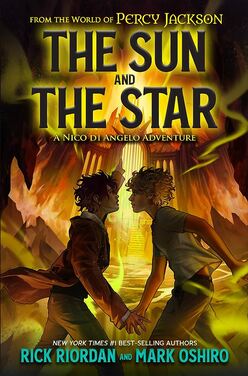
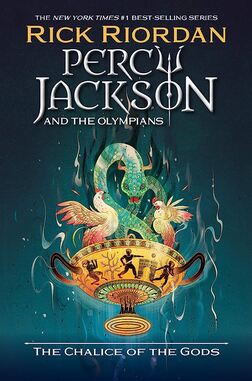
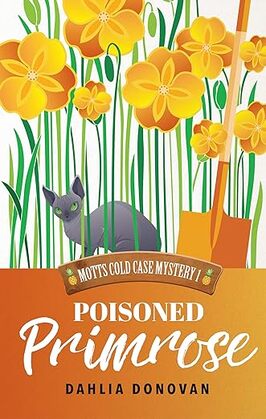
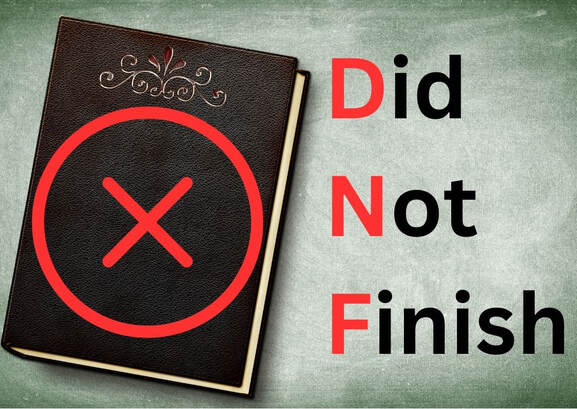
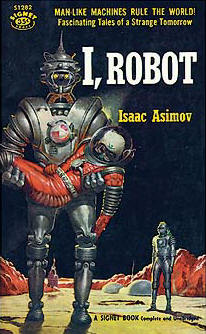
 RSS Feed
RSS Feed